Metabolic Alkalosis
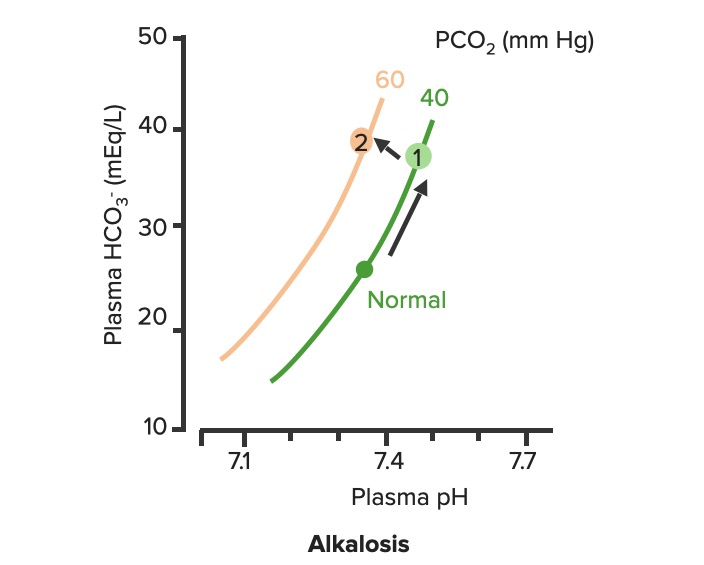
Overview Definition Metabolic alkalosis is the process that results in the loss of hydrogen ions (H+) or the gain of HCO3–. In primary metabolic alkalosis, arterial blood gas will show: Epidemiology Etiology Acid-base Review Acid-base disorders are classified according to the primary disturbance (respiratory or metabolic) and the presence or absence of compensation. Identifying the […]
Metabolic Acidosis
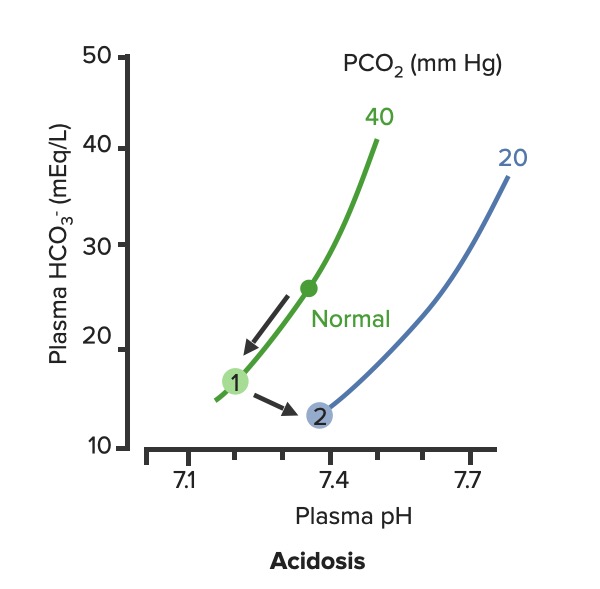
Overview Definition Metabolic acidosis is the process that results in the gain of hydrogen ions (H+) or the loss of HCO3–. In primary metabolic acidosis, arterial blood gas will show: Etiology Acid-base Review Acid-base disorders are classified according to the primary disturbance (respiratory or metabolic) and the presence or absence of compensation. Identifying the primary […]
Respiratory Alkalosis
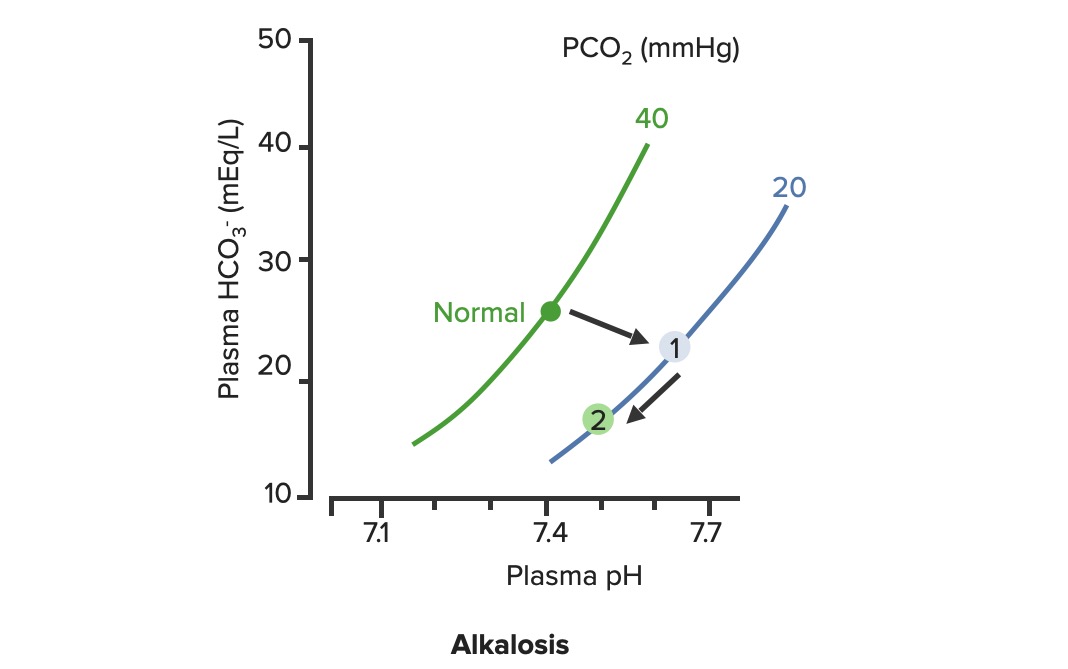
Overview Definition Respiratory alkalosis refers to the process that results in a decreased level of carbon dioxide (CO2) within the blood. Epidemiology Etiology Table: Etiologies of respiratory alkalosis Etiology Examples Physiologic (not pathologic) Pregnancy High altitude Hypoxia-induced Pulmonary embolism Pulmonary edema COPD or asthma exacerbations Medications Aspirin overdose Nicotine overdose Progesterone Intracranial processes Stroke Encephalitis […]
Respiratory Acidosis
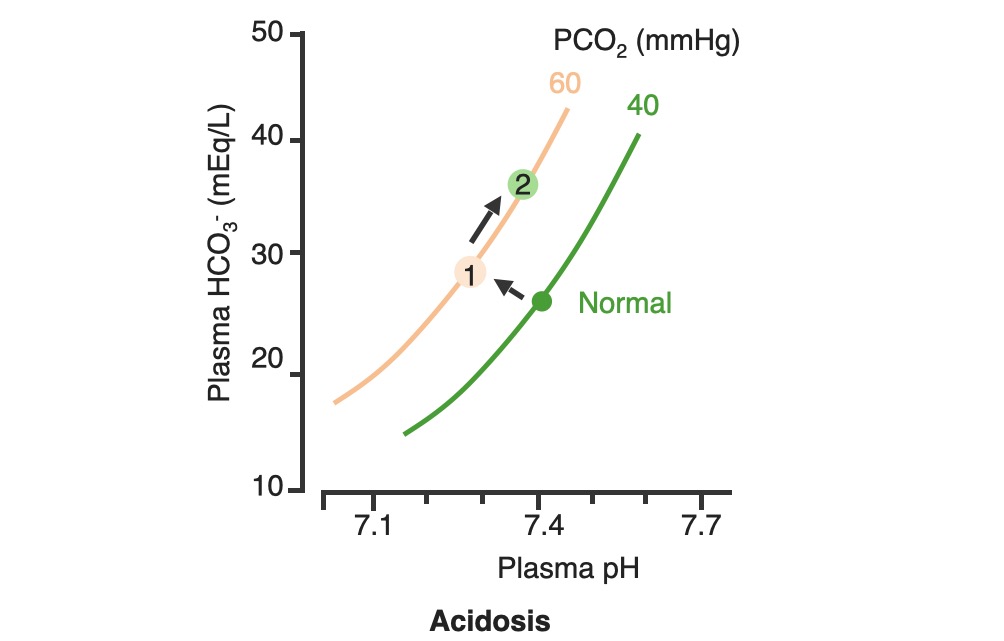
Overview Definition Respiratory acidosis is the process that results in an accumulation of carbon dioxide (CO2) due to abnormal gas exchange in the lungs. In primary respiratory acidosis, the arterial blood gas will show: Epidemiology Acid–Base Review Acid–base disorders are classified according to the primary disturbance (respiratory or metabolic) and the presence or absence of […]
Hemostasis
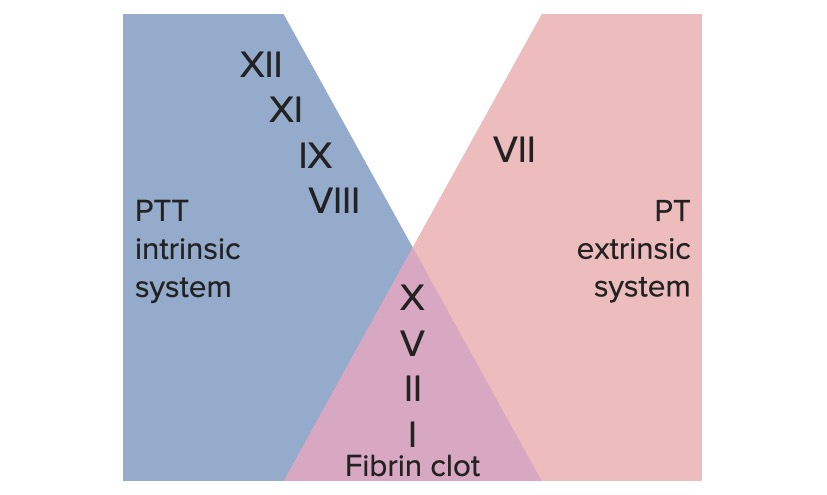
Definition and Phases Definition Hemostasis refers to the innate, stepwise body processes that occur following vessel injury, resulting in clot formation. Phases of the hemostatic process Vasoconstriction and Formation of the Platelet Plug Injured vessels vasoconstrict after endothelial injury. Additionally, exposure of blood to the subendothelial components triggers formation of the platelet plug. Vasoconstriction Endothelial […]
Renal Sodium and Water Regulation
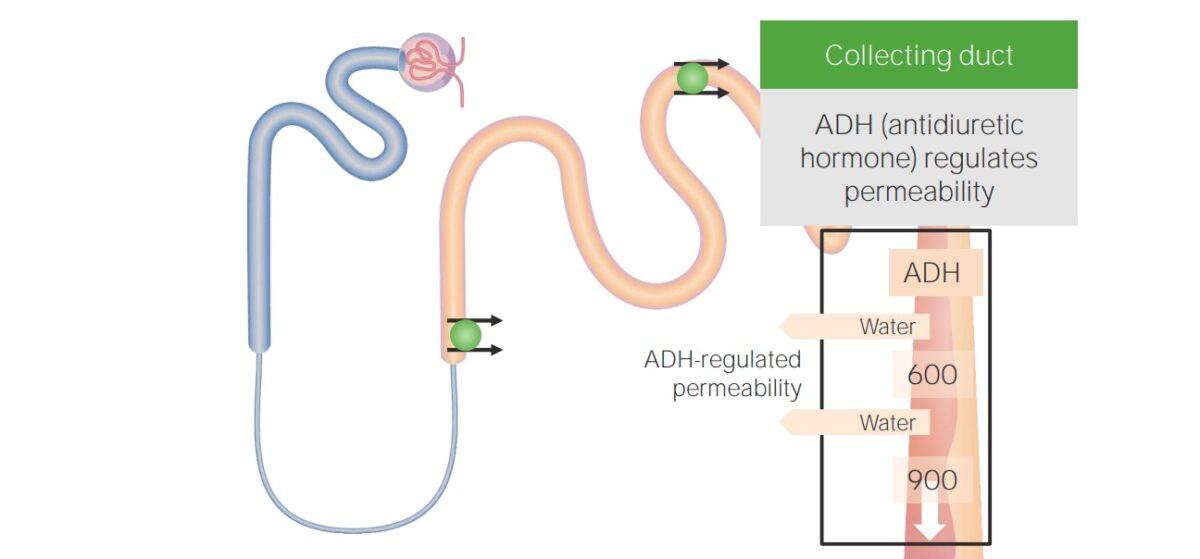
Background Concepts Fluid compartments To understand renal sodium and water regulation, it is important to understand how water is normally distributed in the body. Total body water (TBW): Intracellular fluid (ICF): Extracellular fluid (ECF): Osmolality Plasma osmolality refers to the combined concentration of all solutes in the blood. Tonicity Plasma tonicity refers to the concentration […]
Coagulation Studies
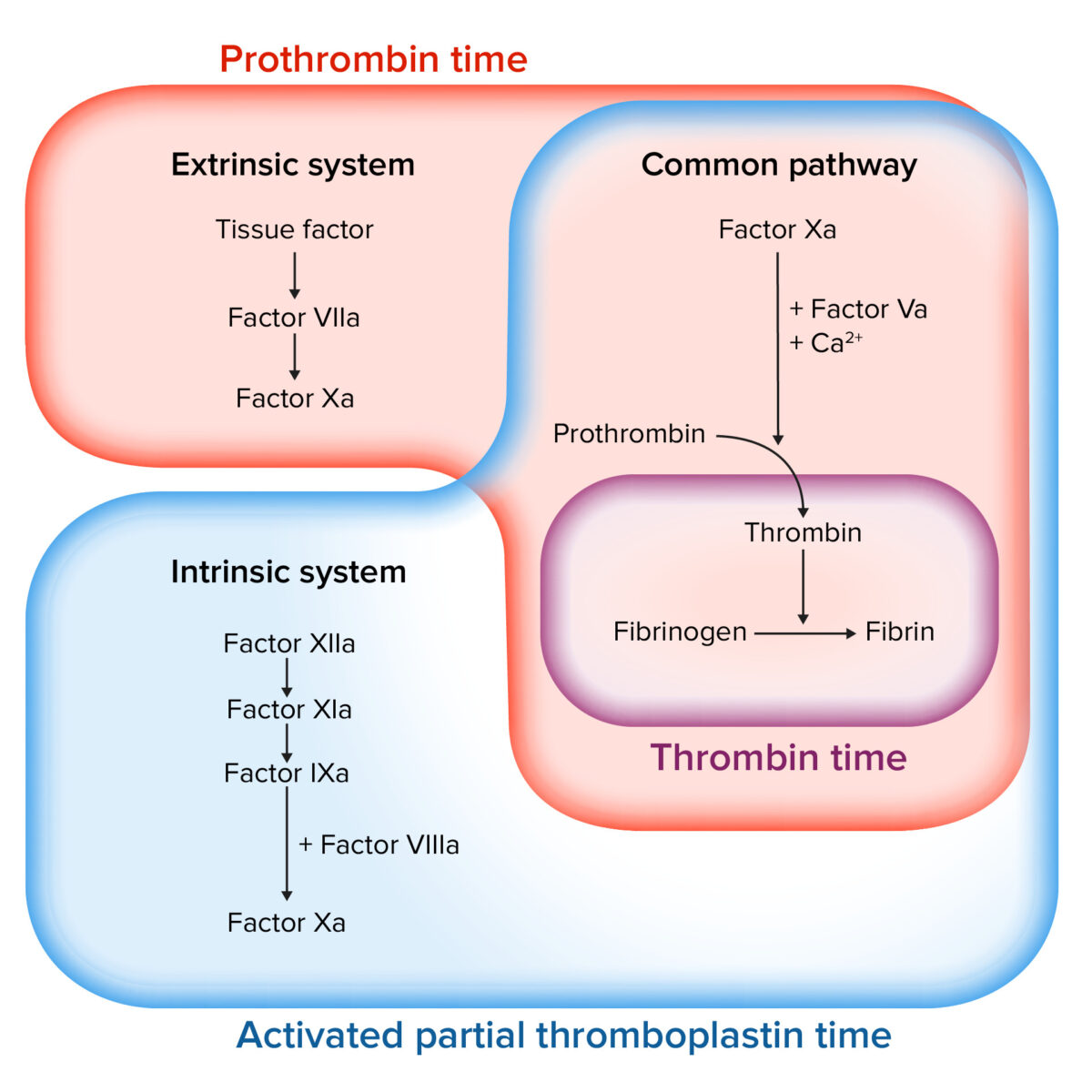
Overview Definition Coagulation studies are a group of hematologic studies that reflect the function of blood vessels, platelets, and coagulation factors, which all work in harmony to achieve hemostasis. Uses of coagulation studies Review: phases of the hemostatic process The following is a summary of the hemostatic process: Coagulation Studies The following studies can assist […]
Renal Potassium Regulation
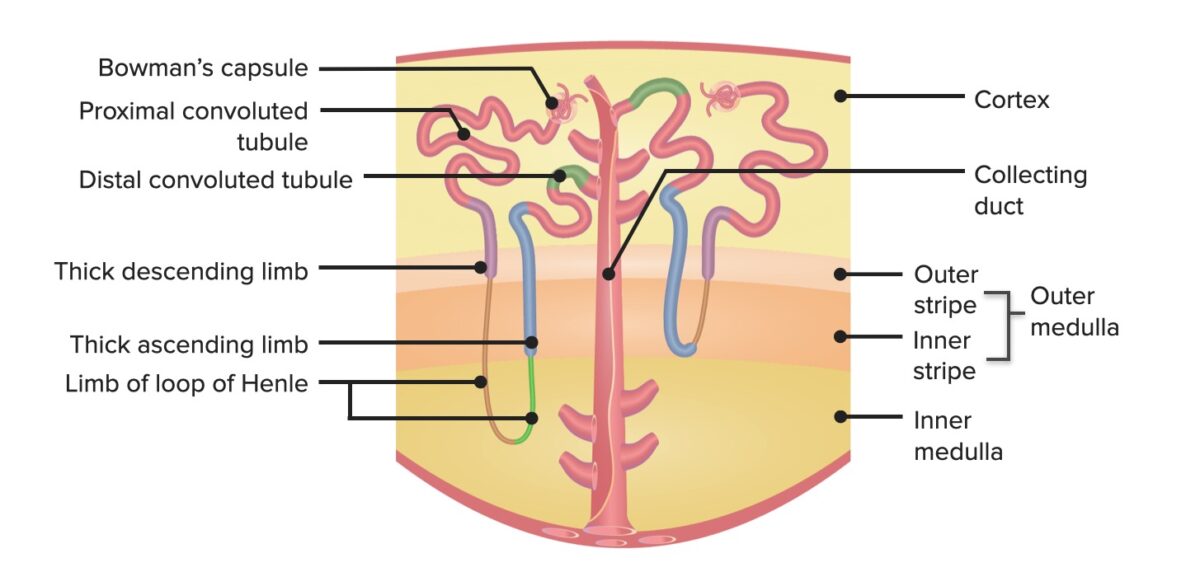
Overview Introduction Potassium distribution: Mechanisms of K+ balance: Renal processes to regulate water, electrolytes, and waste Nephron anatomy review Nephrons are the functional units of the kidney. Nephron segments (in order through which the filtrate flows): Types of nephrons: Potassium Regulation in the Glomerulus, Proximal Tubule, and Loop of Henle Glomerulus Proximal tubule Cells of […]
Glomerular Filtration
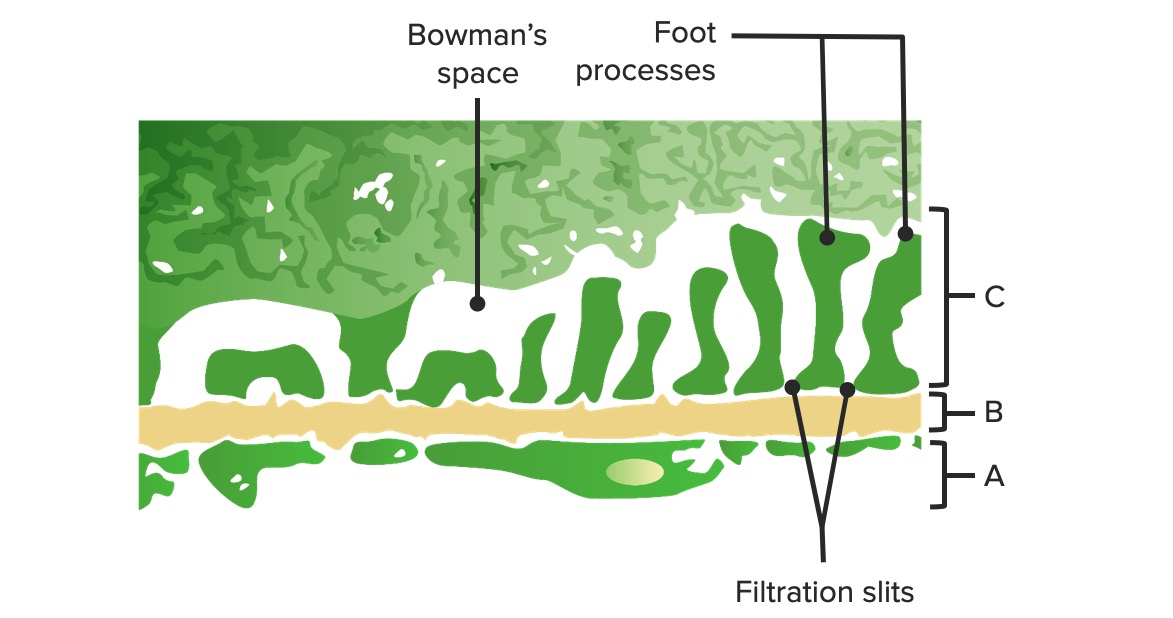
Renal Anatomy and Physiology Overview Overview The GFR is the rate of filtration of plasma through the glomerular membrane. Filtration is 1 of 4 primary mechanisms involved in the regulation of water, electrolytes, and waste excretion: Other renal functions: Kidney layers Blood flow The renal blood flow is as follows (in order): Nephrons Nephrons are […]
Menstrual Cycle
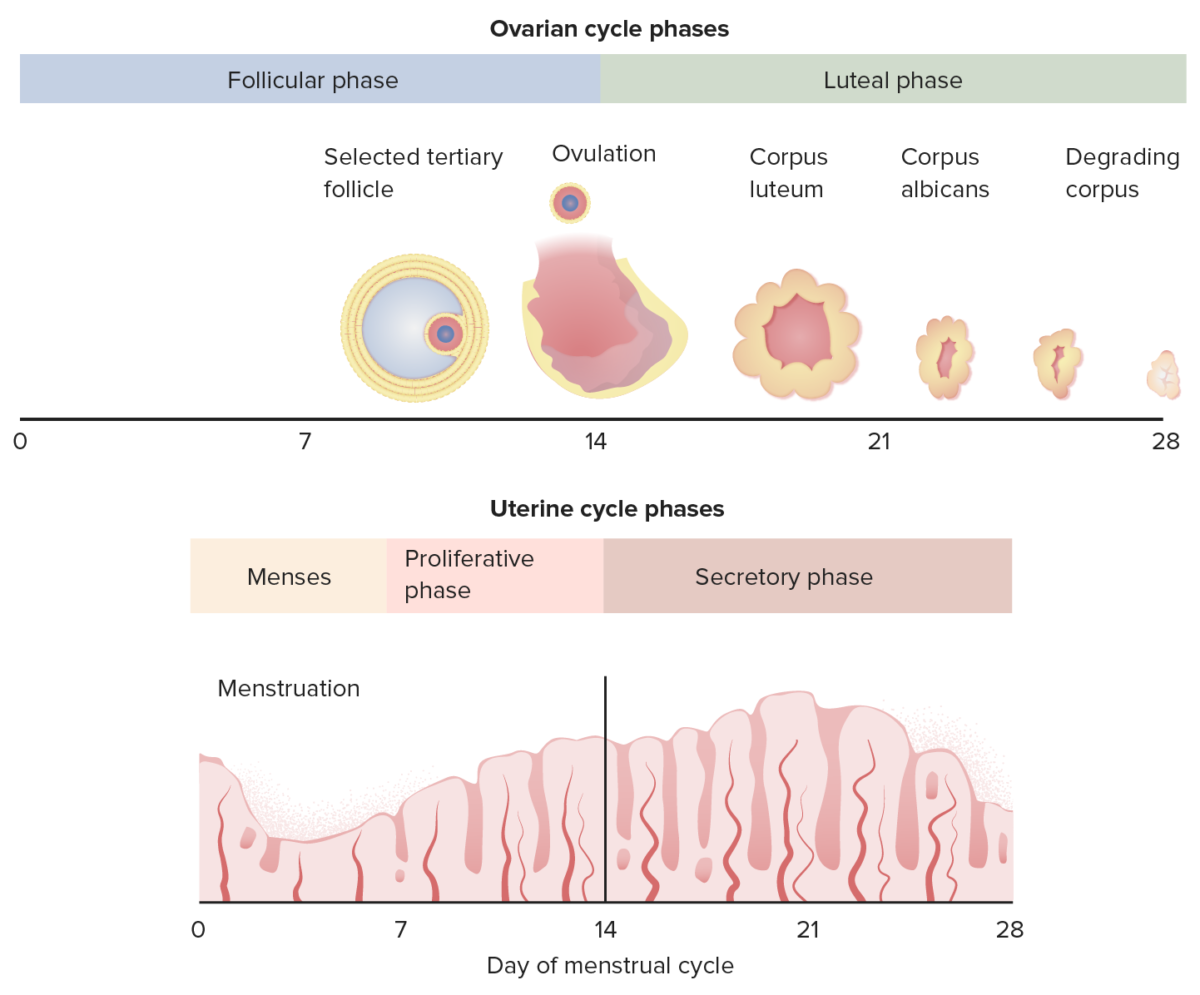
Overview Terminology Phases The menstrual cycle is divided into 2 components: ovarian cycle and endometrial cycle: Ovarian cycle phases: Endometrial cycle phases: Regulation of the Menstrual Cycle The menstrual cycle is regulated by the hypothalamic-pituitary-ovarian axis. Hypothalamus: Anterior pituitary: Ovaries: Ovarian Cycle Follicular phase The phase representing the time during which the follicle (and the […]